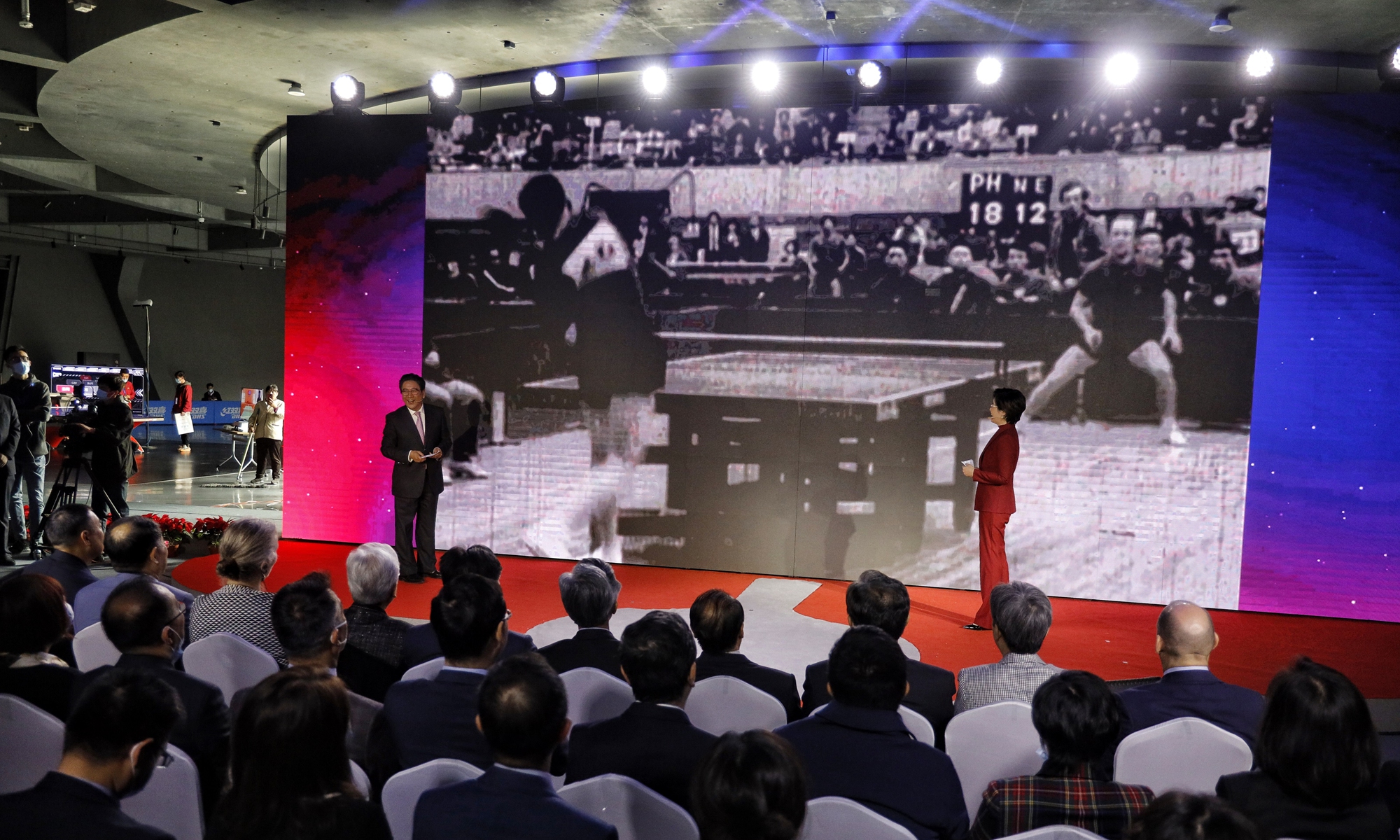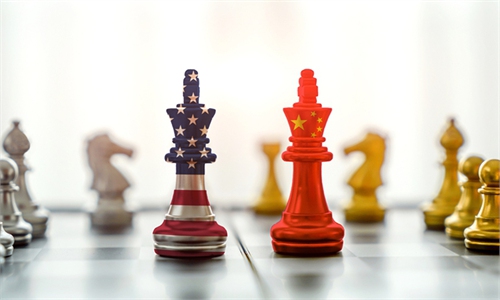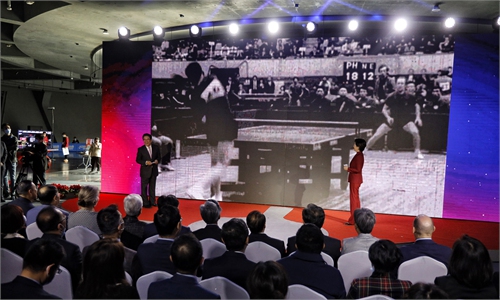US 'claims cooperation, pushes confrontation'; ambivalence weakens possibility of 'Ping-Pong Diplomacy 2.0'

Photo: Li Hao/GT
A Saturday commemoration of Ping-Pong Diplomacy was seen by observers as "more relevant" when China and the US have increasingly confrontational relations and "require flexible people-to-people exchanges" to retain positive exchanges and push forward cooperation, observers said.
But they noted Ping-Pong Diplomacy only works when both sides show sincerity to have amicable interactions, warning that the Biden administration's continuous coercion and harshness on China sends a hostile signal and squeezes room for possible cooperation.
At the Saturday event in Beijing, former US Secretary of State Henry Kissinger underscored the important roles China and the US play in the world structure and common aspirations for a better people-to-people exchange and clear eagerness for a renewed friendship amid some disagreements, in his video address to the commemoration.
Chinese Vice President Wang Qishan hailed fruits in bilateral cooperation in the past 50 years despite twists and turns, calling on both sides to learn from historical diplomatic wisdom as the two biggest economies stand to gain from cooperation and lose from confrontation.
Right ahead of the commemoration, Chinese State Councilor and Foreign Minister Wang Yi, on Friday's video talks with US Council on Foreign Relations (CFR), a 100-year-old influential nonpartisan think tank, called on the US to correct its misunderstanding of China and find the right track in bilateral ties.
Li Haidong from the China Foreign Affairs University told the Global Times on Saturday that China has always been showing goodwill for positive ties. China does not avoid discussing competition, but its strategy is still cooperation-driven.
But what the Biden administration wants is "an extensive competition/confrontation" with cooperation only when "it is necessary for the US," Li said.
Washington pushed forward three China-targeted acts 20 hours ahead of the climate leaders' summit when the two countries are supposed to communicate and figure out cooperation patterns, leading to waning confidence that the two countries can have constructive cooperation on climate change.
Analysts pointed out what "Ping-Pong Diplomacy 2.0" can do is to build a bridge to exchange their ideas and disperse misunderstandings when both sides have such willingness to listen to each other.
Li said that China upholds the historical wisdom in the hope that American non-governmental forces can convey the message to policymakers. But if the Biden administration is brimming with the confrontational strategy, history can hardly shed light on reality.
Unfortunately, the Biden administration is continuing Trump's policy design, with a revised fighting method — from one-on-one to mass brawl on China, Li said, commenting on a Saturday Reuters report that Biden plans to lobby allies to join "forced labor" smears against China at the G7 meeting in June as they "shared democratic values."
Wang Yi said that democracy is not Coca-Cola that promises the same taste everywhere in the world, and the US should respect the path and system independently chosen by China, in one of his five suggestions for the US to deal with China.
The Chinese wisdom goes that "a country practicing hegemony is doomed to fail," rather than "a country will definitely seek hegemony when growing stronger," according to Wang.
In addition to climate change, Wang also named cooperation on epidemic response, which is the most urgent, and on the economy and trade, which has the biggest potential.
But cooperation would have little room in a hostile atmosphere. The Biden administration must stop dreaming of playing confrontation and cooperation as two cards he can use at will to exploit China for US interests, observers said.




